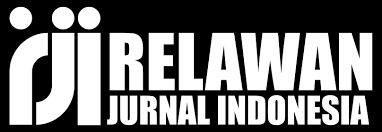PERAN KINERJA KEUANGAN SEBAGAI PEMODERASI PENGUNGKAPAN SUSTAINABILITY REPORTING DAN INTANGIBLE ASSETS TERHADAP NILAI PERUSAHAAN
DOI:
https://doi.org/10.61722/jiem.v2i1.954Keywords:
sustainability reporting, Intangible assets, financial performance, Firm valueAbstract
This research aims to examine the impact on financial performance of sustainability reporting factors and intangible assets that can influence company value in the post-Covid 19 pandemic. The sample in this research is 49 companies that are listed on the Indonesia Stock Exchange and submitted good sustainability reports from 2019 to by 2021. By applying Moderated Regression Analysis (MRA), the results show that financial performance strengthens the influence of sustainability reports on company value. Likewise, financial performance strengthens the influence of intangible assets on company value. High financial performance plays an important role in strengthening sustainability reporting and intangible assets so that they increase or decrease in line with firm value. The results of this research contribute to companies to transparently disclose conditions in sustainability reports and intangible assets can interact with the company's financial performance to increase company value, especially external factors beyond control that are less supportive.
References
Abdi, Y., Li, X., & Càmara-Turull, X. (2021). Exploring the impact of sustainability (ESG) disclosure on firm value and financial performance (FP) in airline industry: the moderating role of size and age. Environment, Development and Sustainability, 24(4), 5052-5079.
Adams, C. A., & Abhayawansa, S. (2022). Connecting the COVID-19 pandemic, environmental, social and governance (ESG) investing and calls for ‘harmonisation’ of sustainability reporting. Critical Perspectives on Accounting, 82.
Al-ani, M. K., & Tawfik, O. I. (2021). Effect of Intangible Assets on the Value Relevance of Accounting Information: Evidence from Emerging Markets. Journal of Asian Finance, Economics and Business, 8(3), 0387-0399.
Alsayegh, M. F., Abdul Rahman, R., & Homayoun, S. (2022). Corporate Sustainability Performance and Firm Value through Investment Efficiency. Sustainability, 15(1).
Bandanuji, A., & Khoiruddin, M. (2020). The Effect of Business Risk and Firm Size on Firm Value with Debt Policy as Intervening Variable. Management Analysis Journal, 9(2), 200-210.
D'Souza, C., Ahmed, T., Khashru, M. F. M. A., Ahmed, R., Ratten, V., & Jayaratne, M. (2022). The complexity of stakeholder pressures and their influence on social and environmental responsibilities. Journal of Cleaner Production, 358.
Das, J. P., & Kumar, S. (2023). The dynamic effect of corporate financial hedging on firm value: The case of Indian MNCs. Borsa Istanbul Review, 23(3), 696-708.
Donaldson, T., & Preston, L. E. (1995). The Stakeholder Theory of the Corporation: Concepts, Evidence, and Implications. The Academy of Management Review, 20(1), 65-91.
Friske, W., Hoelscher, S. A., & Nikolov, A. N. (2022). The impact of voluntary sustainability reporting on firm value: Insights from signaling theory. Journal of the Academy of Marketing Science, 51(2), 372-392.
Grassmann, M. (2021). The relationship between corporate social responsibility expenditures and firm value: The moderating role of integrated reporting. Journal of Cleaner Production, 285.
Handayati, P., Sumarsono, H., & Narmaditya, B. S. (2022). Corporate Social Responsibility disclosure and Indonesian firm value: The moderating effect of profitability and firm’s size. Journal of Eastern European and Central Asian Research (JEECAR), 9(4), 703-714.
Khan, S. Z., Yang, Q., & Waheed, A. (2019). Investment in intangible resources and capabilities spurs sustainable competitive advantage and firm performance. Corporate Social Responsibility and Environmental Management, 26(2), 285-295.
Nguyen, T. T. D. (2020). An Empirical Study on the Impact of Sustainability Reporting on Firm Value. Journal of Competitiveness, 12(3), 119-135.
Niyommaneerat, W., Suwanteep, K., & Chavalparit, O. (2023). Sustainability indicators to achieve a circular economy: A case study of renewable energy and plastic waste recycling corporate social responsibility (CSR) projects in Thailand. Journal of Cleaner Production, 391, 136203.
Orazalin, N., & Mahmood, M. (2019). Determinants of GRI-based sustainability reporting: evidence from an emerging economy. Journal of Accounting in Emerging Economies, 10(1), 140-164.
Pamungkas, N. B. P., & Meini, Z. (2023). The Effects of Sustainability Reporting and Intellectual Capital Disclosure on Firm Value, With Profitability As a Moderator. Jurnal Ekonomi, 12(4), 327-334.
Shen, N., Au, K., & Li, W. (2019). Strategic alignment of intangible assets: The role of corporate social responsibility. Asia Pacific Journal of Management, 37(4), 1119-1139.
Susanti, N., Ichsani, S., & Muhlis, T. I. (2023). The Effect of Dividend Policy as a Moderation Variable on the Effect of Debt Policy and Profitability on Company Value. International Journal of Science and Society, 5(5), 668-675.
Tate, M. (2021). An Investigation of the Impact of Global Reporting Initiative 413 Compliance on Company Performance: search.proquest.com.
Uddin, M. R., Hasan, M. M., & Abadi, N. (2022). Do intangible assets provide corporate resilience? New evidence from infectious disease pandemics. Economic Modelling, 110.
Widnyana, I. W., Wiksuana, I. G. B., Artini, L. G. S., & Sedana, I. B. P. (2020). Influence of financial architecture, intangible assets on financial performance and corporate value in the Indonesian capital market. International Journal of Productivity and Performance Management, 70(7), 1837-1864.
Downloads
Published
Issue
Section
License
Copyright (c) 2023 JURNAL ILMIAH EKONOMI DAN MANAJEMEN

This work is licensed under a Creative Commons Attribution-ShareAlike 4.0 International License.












